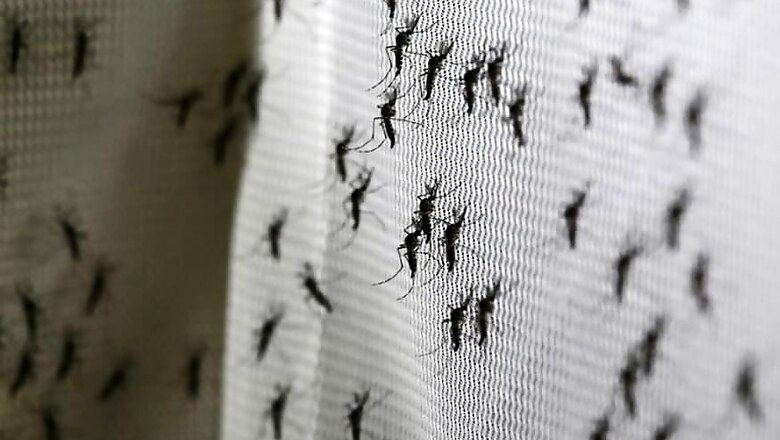
views
Twenty-eight patients have been tested positive for dengue in the last two days daily at SCB Medical College and Hospital, Cuttack.
A drop in rain and temperature has led to the spurt in dengue cases, reported the New Indian Express.
Dengue fever is a painful, debilitating mosquito-borne disease caused by any one of four closely related dengue viruses. It causes a severe flu-like illness and, sometimes causes a potentially lethal complication.
The incidences of dengue has increased 30-fold over the last 50 years. Dengue fever symptoms include a fever, intense headache, body aches, joint pains, loss of appetite, nausea, vomiting, and skin rashes and mucosal bleeding. The disease can be fatal in nature if it’s not diagnosed and treated on time. There is no specific treatment for dengue fever, but adequate fluid intake and bed rest is important.
The report added that of the 67 blood samples examined on Tuesday, as many as 23 blood samples have been tested positive for Dengue virus. Similarly, a total of 155 samples examined on Wednesday out of which as many as 34 tested positive for the vector-borne disease. According to Dr Sriprasad Mohanty, nodal officer of SCB Dengue Ward, total 101 dengue patients are undergoing treatment and six of them have been shifted to ICU after his condition deteriorated.
The World Health Organization says that once infected, humans become the main carriers and multipliers of the virus, serving as a source of the virus for uninfected mosquitoes. The virus circulates in the blood of an infected person for 2-7 days, at approximately the same time that the person develops a fever. Patients who are already infected with the dengue virus can transmit the infection via Aedes mosquitoes after the first symptoms appear (during 4-5 days; maximum 12).
In humans recovery from infection by one dengue virus provides lifelong immunity against that particular virus serotype. However, this immunity confers only partial and transient protection against subsequent infection by the other three serotypes of the virus. Evidence points to the fact that sequential infection increases the risk of developing severe dengue. The time interval between infections and the particular viral sequence of infections may also be of importance.




















Comments
0 comment